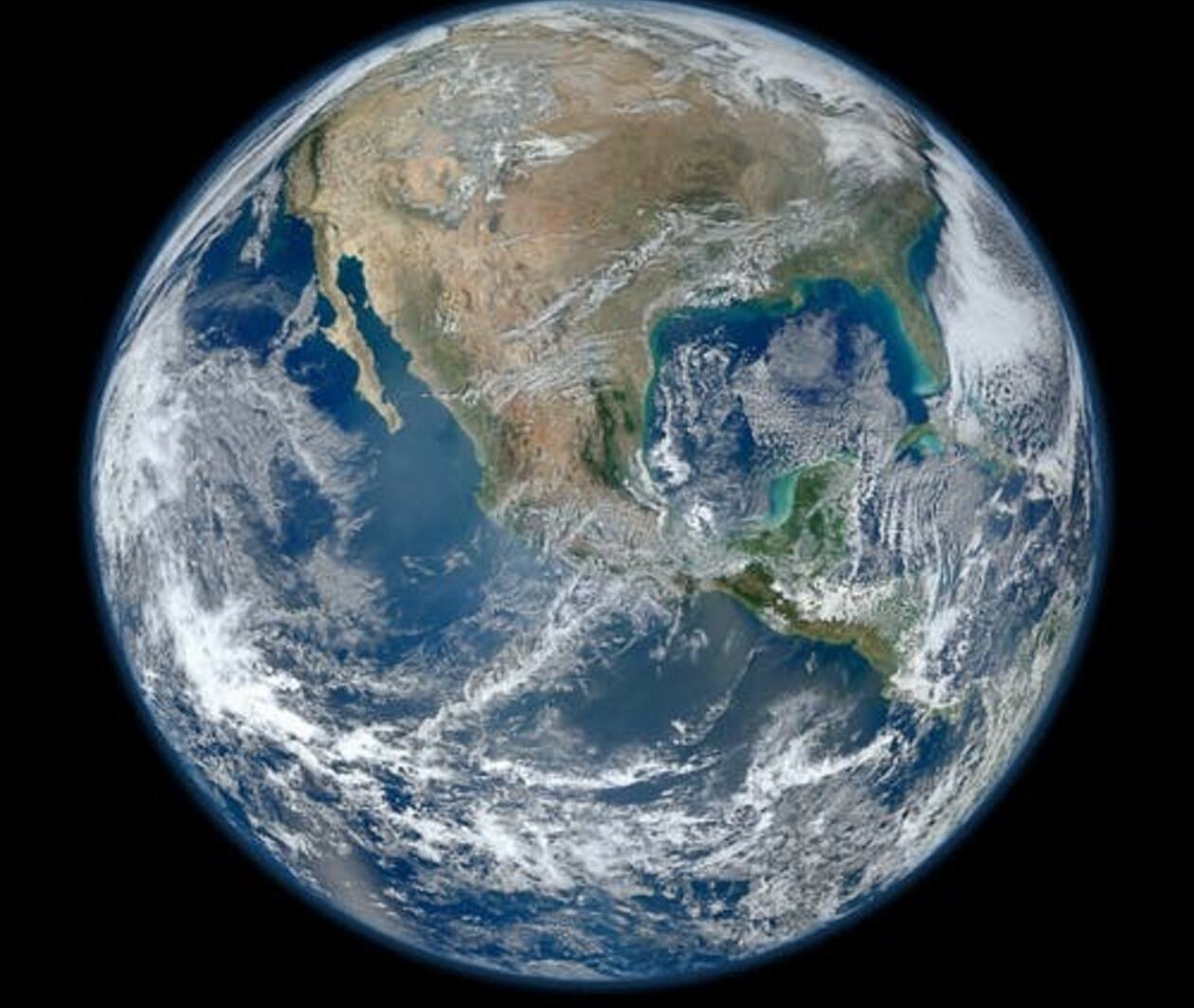This course is part of the Life on Mars, Earth and Beyond with Dr Louisa Preston ExpertTrack
Habitability
Learn what makes the Earth so special, and why ‘habitable’ doesn’t always mean ‘inhabited’.

Duration
3 weeksWeekly study
3 hours100% online
How it worksIncluded in an ExpertTrack
Course 1 of 5
Habitability
Journey to alien worlds here on Earth
Discover the fascinating life that thrives in places humans can’t survive, from the Atacama desert in Chile to Lake Vostok under the ice of Antarctica.
On this three-week course, Dr Louisa Preston will guide you through what these environments have in common with other planets, how life can survive various harsh conditions, and whether that means we could see life on other planets too.
If Earth can sustain life, then why can’t other planets? Or can they?
Habitability all depends on who or what needs to inhabit, and just one small change to an environment can remove any prospect of maintaining life.
You’ll start here on Earth by examining how our planet has managed to maintain its habitability while other planets have not.
Then you’ll take a trip into outer space to classify different galaxies in the Universe and discuss the circumstellar habitable zone (CHZ), the zone around a star where liquid water can be stable on the surface, and thus maintain life.
Explore the wonders of life on Earth
The Earth is made up of a myriad of systems, all perfectly balanced to support life. From its atmosphere to its plate tectonics and even the moon being just the right size and distance, each of Earth’s systems works together to help life thrive.
This course will guide you through these systems, how they work together, and their roles in sustaining life on Earth.
Goldilocks and the water bears
The Earth can be a strange place, with even stranger creatures. They may not be extraterrestrial, but some organisms can appear extremely alien.
You’ll finish this course by meeting the extremophiles: organisms that live in seemingly inhospitable environments. You’ll even focus on the famous tardigrade (aka the water bear) which can survive multiple extremes and are all-but-indestructible.
Syllabus
Week 1
Habitable vs Habitability
Welcome to the course
We will begin by asking ourselves one of the most profound questions ever posed: Are we alone? And for us to even start to answer this, we must first discover what ‘life’ actually is.
What do we mean by habitability?
A habitat only becomes inhabited once life moves in. Here we will look at what 'life as we know it' needs to make a home; whether that home is a single drop of water or an entire planet.
Galactic habitable zones
In the search for life in the cosmos, we are on a quest to find somewhere that is ‘just right’ for life. Here we will explore how it’s not just the right planet that is important, but the entire galaxy.
Maintaining habitability for life
Once we have life, we don’t just want it to survive, but to thrive. Here we will begin to explore how the cycles of the Earth help to maintain life not just in the moment but over billions of years.
Weekly wrap-up
The Earth is unique (as far as we know) in being an inhabited habitable planet. Here we'll recap some key concepts and start to think about how we can apply them when assessing the habitability of other worlds in the galaxy.
Week 2
What makes Earth so special?
Welcome to Week 2
This week we'll start to explore what makes the Earth so special and unique for life. We'll answer questions like “What does our planet have that others like Mars do not?”, and “Is this why we uniquely have life on our surface?"
The greenhouse effect
Here we'll explore how sunlight, the air around us, and the rocks under our feet are all connected, each helping to regulate our planet’s temperature to make it habitable for life – and what can happen if this balance is lost.
Plate tectonics
The Earth’s rocky shell is constantly moving, rearranging itself and helping to cycle nutrients throughout the planet. Here we'll evaluate the importance of plate tectonics and question if there would be life on Earth without it.
The Moon
Here you will learn that the Moon is more than just a staple comforting sight in the night sky. We will hear from a scientist about her fascination with the Moon and her career in space science.
Weekly wrap-up
This week we have learnt about the link between the air, the land and the sea. This final activity will bring everything we have explored together.
Week 3
Alien worlds on Earth
Welcome to Week 3
This week we will discover what kinds of life forms might be capable of surviving on Mars and other planets and what environments this life likes to inhabit. We'll also explore how habitable environments are not always inhabited.
Uninhabited habitats
Here we'll explore life's energy needs and name the different types of organisms on Earth. We'll also hear from an expert about the many uninhabited habitats in the Solar System and what this means for our search for alien life.
Extremophiles
Meet the extremophiles. Life survives in a host of different environments that we as humans cannot, and it’s this life that we think could have existed on Mars. We will also meet my favourite lifeform: the water bear.
Planetary analogues
To find life on other worlds we need to know where to look. Here we will investigate Mars-like environments on the Earth and find out how the Earth is guiding us in our exploration of other planets.
Course wrap-up
This week we have covered habitats, extremophiles and planetary analogues. Now it is time to wrap-up and consolidate everything you have learnt in this course.
Prove you're job ready
Highlight the new, job-relevant skills you’ve gained and supplement existing qualifications with a hard-earned, industry-specific digital certificate – plus one for every course within your ExpertTrack.
- Learn the latest in your chosen industry or subject.
- Complete each course and pass assessments.
- Receive certificates validated by the educating organisation.
- Impress employers with learning outcomes you can add to your CV.
- Make your career dreams a reality.
Download a PDF
Learning on this course
On every step of the course you can meet other learners, share your ideas and join in with active discussions in the comments.
What will you achieve?
By the end of the course, you‘ll be able to...
- Explain how 'habitability' is not a fixed concept
- Recognise and classify different galaxies in the Universe
- Describe how the Earth has managed to maintain its habitability whilst other planets have not
- Summarise how the Earth maintains its temperature
- Describe the link between plate tectonics and life
- Explain the impact of having a moon on life on Earth
- Recognise that places capable of supporting life do not always have life
- Investigate extremophiles and their life on earth
- Explain the importance of planetary analogues in astrobiology
Who is the course for?
This course is designed for anyone interested in the fundamentals of astrobiology, particularly habitats and habitability on Earth and on other planets.
It will be especially useful to university applicants looking to identify areas that they’d like to specialise in and STEM teachers looking to bring science to life for their students.
Who will you learn with?
I am an astrobiologist, geologist, and author at the Natural History Museum in London. I am also on the science team for the European Space Agency ExoMars 2022 Mars rover ‘Rosalind Franklin'.
Start learning today - free 7-day trial
After your free trial you can:
- Pay $39 per month to keep learning online
- Have complete control over your subscription; you can cancel any time
- Work at your own pace and set your own deadlines at every stage
- Only pay while you’re learning; the subscription will cancel automatically when you finish
- Complete online assessments to test your knowledge and prove your skills
- Earn digital course certificates and a final award that you can share online, with potential employers, and your professional network
- Keep access to the content of courses you complete even after your subscription ends
Learning on FutureLearn
Your learning, your rules
- Courses are split into weeks, activities, and steps to help you keep track of your learning
- Learn through a mix of bite-sized videos, long- and short-form articles, audio, and practical activities
- Stay motivated by using the Progress page to keep track of your step completion and assessment scores
Join a global classroom
- Experience the power of social learning, and get inspired by an international network of learners
- Share ideas with your peers and course educators on every step of the course
- Join the conversation by reading, @ing, liking, bookmarking, and replying to comments from others
Map your progress
- As you work through the course, use notifications and the Progress page to guide your learning
- Whenever you’re ready, mark each step as complete, you’re in control
- Complete 90% of course steps and all of the assessments to earn your certificate
Want to know more about learning on FutureLearn? Using FutureLearn

